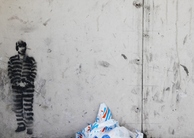Remote Causes and Counseling Implications of Examination Malpractice in Nigeria
By
2011, Vol. 3 No. 10 | pg. 1/1
IN THIS ARTICLE
KEYWORDS
AbstractThis study considers the remote causes of examination malpractice in the Nigerian education system with a view to suggest new ways of combating the problem. Three research hypotheses were formulated to guide the study. Using the multistage stratified sampling technique, 200 students were selected for the study from 20 secondary schools in Akwa Ibom State. An Examination Malpractice Questionnaire (EMQUE) was used for data collection. The three research hypotheses were tested statistically using the Chi square statistical technique. The results indicate that poor study habits, paucity of educational facilities, and inability of schools to cover prescribed syllabuses are significant remote causes of examination malpractice in the country. Based on these findings, methods of tackling the menace are proffered and counselling implications are suggested. IntroductionThe issue of examination malpractice is a national emergency situation. Before the advent of western type education, traditional Nigerian education was based mainly on experience and practice. Its mode of instruction was simple as knowledge was passed on orally and through practical tests. Students then only had to commit to memory, learn by rote, or through observation (Ibia, 2006). Because traditional Nigerian education placed little or no emphasis on certification, students had the proper view of education, seeing it as a means to an end not an end in itself. Besides, the Nigerian culture then frowned at dishonesty and would not hesitate to sanction offenders (Agogo, 2006). According to Ejiogu (2001), general moral decadence and the high premium placed on achievement and certificates by Nigerians has in recent times spawned examination fraud. The general overdependence on educational certificates as a measure of one’s knowledge and competence has led to a mad rush by most people for educational certificates (Sofola, 2004). In a bid to acquire such certificates, many have resorted to unethical means—foremost among which are examination malpractices—just to acquire the certificates at all cost.Without doubt, the persistent occurrence of examination malpractice in Nigeria has spawned heinous problems such as:
Mention-worthy at this juncture is the fact that Nigerians have not been sleeping since the wake of this mischief in the mid 1970s. It is on recorded history that the first serious case of examination malpractice in independent Nigeria was the leakage in 1977 of the West African Examination Council (WAEC) question paper for the West African School Examination (Onyechere, 1996). The outcry by WAEC in the wake of this incidence led to the setting up of a tribunal by the Federal government of Nigeria to investigate the mass leakage and to suggest possible measure to forestall future occurrence. The tribunal recommended severe punitive measures. The federal government followed this up by promulgating Degree No. 20 of 1984 and later, Degree No. 33 of 1999 in which severe punishments against perpetrators of examination malpractice were clearly enshrined. Further measures which have been taken in recent times to eradicate examination malpractice include that taken by the Obasanjo Administration which embedded in the National Economic Empowerment and Development Strategy (NEEDS) policy document a target of 40% reduction in examination malpractice annually; the existing legislation on examination malpractice, Degree No. 33 of the 1999 Constitution which is still in force—though not enforced; and the move by the Federal Ministry of Education to introduce the study of ethics in the school curricula with a view to forestalling examination malpractice. It is a truism that even though much has been done, it is either grossly inadequate or ineffectual at curbing the menace as we day-in-day-out see examination malpractices take newer, dynamic and appealing forms especially with the advances in Information and Communications Technology (ICT) coupled with the general falling standards of societal norms. It is also true that examination malpractice would not have attained its present endemic state but for the fact that the major stake holders in education are at the forefront aiding and abetting the crime. Orhungur (2003) decried the general opinion which tends to indict the students and exonerate the teachers and other examination agents. Quoting a tentative report by Usman, he maintained that if the staff, that is, all who have to do with examinations—examiners, typists, custodians, staff of examination bodies, printers, transporters, and security agents—put their house in order, students would not have access to examination materials before examinations. Umar (2003) indicted head masters and principals as the biggest perpetrators of examination malpractice in the country. He asserted that headmasters in connivance with their teachers initiate primary school pupils into examination malpractice during common entrance examinations by giving answers to the students so that they would record high number of passes in their schools. In the case of secondary school principals, Umar (2003) stated emphatically that they are the worst perpetrators of the crime as they, in a bid to have the names of their schools praised and recognized, manipulate and aid the crime. In the same vein, Ike (2004) of the EEP held that principals have gone to the extent of building into the National Examinations Council (NECO) and the West African Examinations Council (WAEC) registration fees, an examination malpractice fee variously referred to as cooperation fees, understanding fees, examination welfare fees, and miscellaneous fees with the sole aim of bribing supervisors and invigilators and whoever sent them so that they might ‘cooperate’ during examinations. Another group of master-minders who have rather taken centre stage in recent times are operators of private study centres also known as extramural classes. These study centres are veritable fronts for examination fraud operated by organized syndicate who charge outrageously high fees for examinations. Funnily enough, students are, more often than not, willing to pay because in the end it pays off very well (Thisday, 2004). The last group which is also a strong force behind the perpetration of examination malpractice is the parents. Many parents would not want their children to repeat any class no matter their level of performance. Thus, they pressure school authorities to give their children automatic promotion even when they fail their examinations. Parents are also in the forefront of hiring mercenaries to write examinations for their wards. They thus collude with principals to issue fake but favourable examination results to their children. Looking beyond the contribution of education stakeholders to examination crimes, other important causes of examination malpractice revolve around the students and their attitude towards their studies as influenced by the general socio-economic situation in the country. In recent times, students prepare—if at all they do—lackadaisically for examinations. The reason for this lacklustre attitude as opined by Thomas Derry of WAEC is that the youths have prioritized entertainment and pleasure at the expense of their books (myspacefm.com, 2004). Furthermore, Anger (2004) pointed out that the high fees associated with especially the Senior School Certificate Examination (SSCE) makes malpractice unavoidable as poor students cannot afford to repeat a given examination and would in the first instance do anything to pass it at all cost. A comprehensive submission by Anyiin (1998) identified the fundamental causes of examination malpractice to include:
Statement of the ProblemIn the fight against examination malpractice, it appears that no one is exonerated. As exposed in the preceding section, education stakeholders, the students, as well as the national economy could rightly be apportioned blames for the preponderance of this menace. In sum, these variables tend to operate interdependently such that there is a cumulative influence, with one variable buttressing the others. This could be seen in the fact that the poor economic situation in the country has compelled most poor parents to resort to unethical means in order that their wards may pass their examinations at one sitting. Therefore, this research investigates remote causes of examination malpractice in Nigeria with a view to proffering effective methods for curbing the menace. Purpose of the Study The purpose of this study is to investigate the causes of examination malpractice in Nigeria and proffer proactive measures to forestall it. Specifically, the study will focus on finding out the extent to which:
Research Hypotheses The following hypotheses were tested in the study:
Significance of the Study Examination malpractice is a cankerworm that has eaten deep into the fabric of our educational system with appalling effects. This study is significant in that it will expose the potency of apparently ignored variables that contribute to and sustain examination malpractice in Nigeria. Furthermore, from the findings of this research, appropriate measures to curb this menace will be suggested. Population The population for this study comprised all Senior Secondary III (SS 3) students attending both public secondary schools and private study centres in Akwa Ibom State at the time of this study. Sample and Sampling Technique A sample of 200 students from 12 public secondary schools and 8 private study centres in Akwa Ibom State were selected for this study using the multistage stratified sampling technique. 10 students were picked from each of the 20 schools, totalling 200 students. Instrumentation The instrument used in data collection for this study was the Examination Malpractice Questionnaire (EMQUE) constructed by the researcher. The instrument has two Sections, A and B. Section A items sought for personal data while Section B of the questionnaire investigated identified remote causes of examination malpractice in Nigeria. Validity of the Instrument In order to ensure the content validity of the instrument, the items were constructed after careful review of professional literature on examination malpractice in Nigeria. Also, draft copies were given to 3 professional educators and 3 measurement evaluators to assess the suitability of the items on the questionnaire. Their professional suggestions were well integrated in the final copy. Method of Data Analysis The data collected were represented in tables and frequency counts were taken and analysed using simple percentages according to the research questions formulated for the study. Also, the hypotheses in the study were tested using the Chi square statistic at .05 level of significance and appropriate degrees of freedom. Result PresentationResearch Question One: Does the lack of educational facilities contribute to the incidence of examination malpractice in the Nigerian Education system? TABLE 1 Lack of Educational Facilities and Examination Malpractice
Significant at p≤.05 level (Calculated X2 = 20; df = 6; Critical Value = 12.59) Interpretation: Analysis of the data in Table 1 shows that 75% of all the responses favoured the postulation that lack of educational facilities contribute to examination irregularities in Nigeria as opposed to only 25% that thought otherwise. Thus it is clear that lack of educational facilities does to a very great extent contribute to the incidence of examination malpractice in Nigeria. Hypothesis One: Lack of educational facilities does not significantly contribute to the incidence of examination malpractice in the Nigerian Education system. From the analysis of data in Table 1, it could be observed that the calculated value of X2 is 20 whereas the critical value at .05 level of significance and 6 degrees of freedom is 12.59. Therefore, since the calculated value 0f X2 (20) is greater than the critical value of X2 (12.59), the null hypothesis which postulated that Lack of educational facilities does not significantly contribute to the incidence of examination malpractice in the Nigerian Education system is rejected. This implies that lack of educational facilities does significantly contribute to the problem of examination malpractice in the Nigerian Education system. Research Question Two: Does the inability of schools to cover their syllabuses make the students cheat during examinations? TABLE 2 Non-Coverage of Prescribed Syllabuses and Examination Malpractice
Significant at p≤.05 level (Calculated X2 = 59; df = 6; Critical Value = 12.59) Interpretation: Analysis of the data in Table 2 shows that 70% of all the responses favoured the submission that if schools were unable to cover the prescribed syllabuses, their students were more likely to cheat during examinations. Hypothesis Two: The inability of schools to cover prescribed syllabuses does not significantly promote cheating during examinations in Nigeria. When tested statistically, the result for Hypothesis Two returned 59 as the calculated value of X2 while the critical value of X2 at .05 level of significance and 6 degrees of freedom was 12.59. In view of this outcome, the null hypothesis which predicted that the inability of schools to cover prescribed syllabuses does not significantly promote cheating during examinations in Nigeria was rejected. This means that the inability of schools to cover prescribed syllabuses does significantly promote cheating during examinations in Nigeria. Research Question Three: Does poor study habits aggravate the problem of examination malpractice in the Nigerian Education system? TABLE 3 Responses on the Influence of Poor Study Habits on Examination Malpractice
Significant at p≤.05 level (Calculated X2 = 81; df = 6; Critical Value = 12.59) Interpretation: From the analysis in Table 3, 98% of all the respondents see poor study habit as being the root cause of examination malpractice in Nigeria. This is supported by the position of another 63% of the respondents who maintain that inadequate preparation for examinations is a leading cause of examination malpractice in Nigeria. Hypothesis Three: Poor study habit does not significantly worsen the problem of examination malpractice in the Nigerian Education system. From the analysis in Table 3, it can be observed that the computed value of X2, which was 81, is greater than the critical value of X2, which was 12.59 at .05 level of significance and 6 degrees of freedom. In view of this result, the third null hypothesis which claimed that poor study habit does not significantly worsen the problem of examination malpractice in Nigeria was rejected. This means that poor study habit does significantly aggravate the problem of examination irregularities in Nigeria. Discussion of ResultsResults obtained from the foregone data analyses reveal the effects of the lack of educational facilities, poor study habits, and inability of schools to cover their syllabuses on the incidence of examination malpractice in Nigeria. The statistical analysis of the first research question gives strong indication that lack of educational facilities contributes significantly to examination irregularities in Nigeria. This conclusion is in consonance with the submission of Ibia (2006) and Agogo (2006) who maintained that because traditional Nigerian education promoted the acquisition of knowledge through practical tests inter alia, students never resorted to dishonest means of acquiring educational certificates. Furthermore, the findings of Ayiin (1998), that lack of necessary facilities, among other things, sustain examination malpractice in Nigeria gives further credence to the result of this study that lack of educational facilities does significantly contribute to the problem of examination malpractice in Nigeria. The second research question yielded responses to three items that focused on how the inability of schools to cover prescribed syllabuses could influence students’ participation in examination irregularities. From the analyses of these three items it became clear that students cheat in examinations because they were not taught most of the things they are given in examinations. This is in agreement with the submission of Anyiin (1998), who listed non-coverage of prescribed syllabuses due to their extensiveness and the general nonchalant attitude of teachers towards teaching among the fundamental causes of examination irregularities in Nigeria’s educational system. If we compare the foregone submission by Ayiin (1998) with the submission by Anger (2004), that poor students cheat because they cannot afford to re-sit for the same examination due to the high fees associated, we see how the cumulative effect of these two factors support the result of this study, that inability of teachers and students to exhaust prescribed syllabuses significantly promotes cheating during examinations. The third research question considered the influence of poor study habits on the incidence of examination malpractice in the country’s educational system. Responses to the three items on this variable showed a strong link between poor study habits and examination malpractice in Nigeria. Virtually all the subjects of the study admitted that poor study habits among students is at the root of examination malpractice in the country. The result of statistical analysis of the third research hypothesis shows that this contribution of poor study habits to examination malpractice is very significant. This corresponds with the opinion of Thomas Derry (2004) who maintained that youths have prioritized entertainment and pleasure at the expense of their books. ConclusionThe war against examination malpractices has hitherto been focusing on the setting up of panels of investigation and tribunals, the promulgation of Decrees, the setting up of educational committees, surveys and campaigns by non-governmental bodies, among other reactive measures. The aim has always been to punish offenders in order to deter others from future involvement. This research delved deeply into the remote causes of examination malpractices and revealed that the rising tide of examination crime could be tamed through the students and education stakeholders by exposing the influence of poor study habits, non-coverage of prescribed syllabuses, and lack of educational facilities. The research has exposed veritable areas that should henceforth be given more attention. We have seen how much could be achieved if our schools were to be well equipped with needed educational facilities. We have seen the extent to which the inability of teachers to cover prescribed syllabuses has contributed to the preponderance of examination irregularities in the country. We have also seen how the dearth of effective study habits has accelerated students’ involvement in examination fraud. It therefore becomes imperative that these areas should not be ignored in the struggle to forestall examination malpractice in the country’s educational system. Counselling ImplicationsSchool counsellors should endeavour to use their initiative and assist students to see educational certificates as a means to an end and not an end in itself. This can be accomplished through schedules of group counselling aimed at attitudinal reorientation of the students. Again, as facilitators in the teaching-learning process, school counsellors should reach out to school teachers and appropriate authorities and remind them of the importance of covering the syllabuses prescribed for the students within the regulated course work period. Finally, school counsellors are in a better position to assist students develop effective study habits, therefore they should not hesitate to proffer to their students study patterns or techniques that are appropriate. RecommendationsFrom the outcome of this research, the following are recommended: Education stake holders should take their responsibilities seriously. The teachers particularly need to pay more than the usual attention to the need for them to cover their syllabuses so that students will no longer recourse to cheating in examinations as a method of making up for uncovered syllabuses. There should be incentives, in form of scholarship grants and tangible prizes, for students who work hard in reading and studying. It is a fact that if students’ study habits are properly reinforced they could significantly improve. Finally, the government at all levels should furnish her schools with modern facilities to aid teaching and learning. Unless this is done, students will continue to learn in abstraction. They will continue to cheat defensively in examinations on the pretext that they have never done laboratory practices due to lack of facilities. Therefore, the government should step up efforts to furnish her schools with needed facilities. If the forgone recommendations are implemented, examination malpractices could be reduced to the barest minimum in Nigeria.
References Ada, N. A. (2004). Examination Malpractice and Cultism in Nigerian Institutions of Learning. In Ada, N. A. (Ed) Issues in Sociology of Education.Makurdi: Peach Global Publications. Agogo, P. O. (2006) Deviation from Nigerian Cultural Practices and Values: A Factor in the Introduction of Examination Malpractice and Cultism in Nigerian Schools. In B. Anger and T. Tyav (Eds) Examination Malpractice and Campus Cultism in Nigeria: Implications for National Development. Abuja: Aboki Publishers. Anger, B. (2004). The Role of Parents on Academic Performance of Students in Nigerian Schools. A Conference Manual on Examination Malpractice and Campus Cultism.Benue State Ministry of Education in Conjunction with the Center for Economic and Social Development, Makurdi, Fermo Prints, Gboko, 2004. Anyiin, T. J. (1998). Examination Malpractice in Benue State Schools: The Way Forward. Seminarpaper by the Cultism Committee, Makurdi, 1998. DailyTrust (2003). More than N1 billion lost to Exam Fraud Yearly: says Onyechere, I. Monday, July 28. Ejiogu, A. (2001). Morality and National Development: A Case for National Rebirth. Abuja: National Orientation Agency. Ibia, E. Ibia (2006). Sociological Foundations of Nigerian Education. Uyo: Abaam Publishing Co. Myspace.com (2003) Interview with WAEC officials conducted by Space FM87.7 mhz. Onyechere, I. (1996) Examination Ethics: Handbook. Yaba: NERDC Press. Orhungur, M. (2003). Examination Malpractice; Implication for Schools and the Nigerian Society; A Conference Paper at the 27th Annual Conference of the Counselling Association of Nigeria (CASSON), University of Ibadan 18th to 22nd August. Sofola, O. (2004). Dangers of Examination Malpractices. Life Magazine: Special Issues. Gbangado, Lagos Life Press. Thisday (2004). Examination Malpractice: ZamfaraToplists Survey. Thursday September, 14. Umar, U. T. (2003). The Proliferation of Examination Malpractices. Downloaded from www.gamji.com. On 19/12/2003. Usman, J. O. (1999) How to Answer Biology Questions: Examination Malpractice. Makurdi: Living Faith Press. Suggested Reading from Inquiries Journal
Inquiries Journal provides undergraduate and graduate students around the world a platform for the wide dissemination of academic work over a range of core disciplines. Representing the work of students from hundreds of institutions around the globe, Inquiries Journal's large database of academic articles is completely free. Learn more | Blog | Submit Latest in Education | ||||||||||||||||||||||||||||||||||||||||||||||||||||||||||||||||||||||||||||||||||||||||||||||||||||||||||||||||||||||||||||||
















